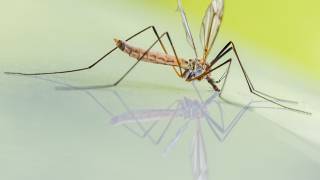Zika Vaccine Candidate Progressing Closer to Launch

According to initial results from three Phase 1 clinical trials, the investigational Zika purified inactivated virus (ZPIV) vaccine was well-tolerated and induced an immune response in this study’s participants.
The ZPIV vaccine candidate contains whole Zika virus particles that have been inactivated and therefore cannot replicate and cause disease in humans.
However, because the protein shell of the inactivated virus remains intact, it can be recognized by the immune system.
More information about these Phase 1 trials of ZPIV can be found at NCT02963909, NCT02952833, NCT02937233, and NCT03008122.
"Zika remains a threat to U.S. military personnel and families of service members. We aim to develop a vaccine to protect the military, as well as the global community," said Col. Nelson Michael, Zika program leader at the Walter Reed Army Institute of Research.
Scientists at the Walter Reed Army Institute of Research (WRAIR), part of the U.S. Department of Defense, are developing this vaccine, as well as leading one of the trials.
The results of these clinical trials were published in The Lancet.
Anthony S. Fauci, M.D., NIAID Director, said "We are encouraged by initial clinical trial results that indicate the ZPIV vaccine is safe and immunogenic, data that support additional clinical testing of the vaccine to determine its ability to prevent Zika virus infection."
While Zika experts have not precisely determined the concentration of antibodies needed to protect against congenital infection, animal model studies are helping to provide useful insights.
Researchers investigated the possible mechanism of vaccine protection by transferring the vaccinated participants' antibodies into mice and then purposely infecting the mice with Zika virus.
Additional research on the candidate vaccine will examine dosing, schedule, and prior immunity. Specifically, WRAIR is examining the impact of pre-existing immunity by vaccinating participants with a yellow fever or Japanese encephalitis vaccine before beginning the ZPIV vaccine regimen.
Those viruses, like Zika, are members of the flavivirus family.
The NIAID is developing additional Zika vaccine candidates, including an experimental DNA vaccine, which is currently in Phase 2 trials at sites in the United States, Central, and South America.
In addition, NIAID is helping to develop an investigational mRNA Zika vaccine (a gene-based platform similar to DNA vaccines) and a live-attenuated vaccine candidate designed to protect against Zika and all four strains of dengue virus.
WRAIR is co-funding the trials together with the National Institute of Allergy and Infectious Diseases (NIAID), part of the National Institutes of Health (NIH).
For more information about NIH and its programs, visit http://www.nih.gov.
Our Trust Standards: Medical Advisory Committee


























